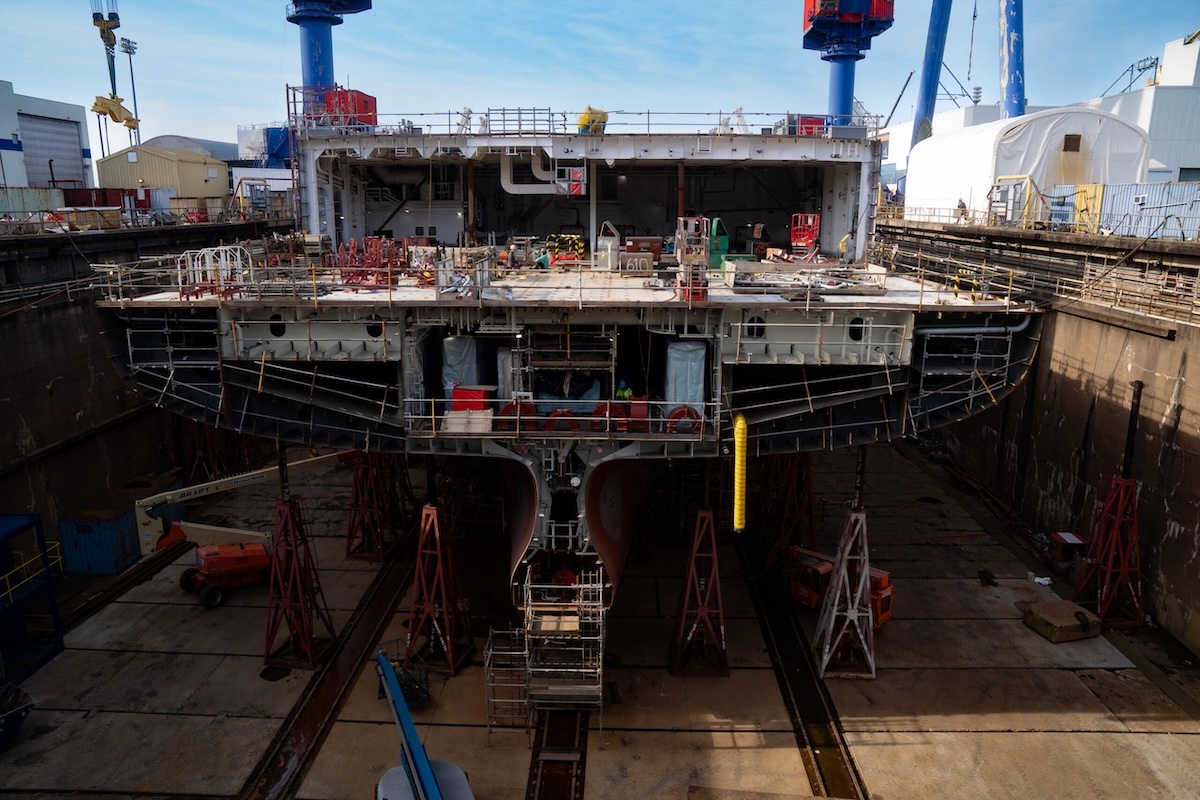China’s Sanctions Shake Up Shipbuilding Trade
The latest chapter in the ongoing trade tensions between China, the U.S., and South Korea has been written with a bold move by Beijing: sanctions on U.S. subsidiaries of Hanwha, the South Korean conglomerate investing heavily in American shipbuilding. This retaliatory action hits at the heart of the U.S. effort to revive its domestic shipbuilding industry, which has become a flashpoint amid trans-Pacific trade frictions.
What Are These Sanctions About?
China’s Commerce Ministry took the unusual step of forbidding Chinese entities from engaging in business with five specific subsidiaries of Hanwha Ocean, including Hanwha LLC and Hanwha Yard Inc., among others. The motivation? A tit-for-tat response to a U.S. inquiry into China’s practices in shipping and shipbuilding, suggesting Beijing perceives these as unfair trade tactics that have given China too dominant a market position.
Concurrently, both countries began slapping hefty fees on each other’s vessels at their ports, compounding the strain. For shipping companies and logistic operators, this is more than just a headline — it’s a real-world ripple affecting global shipping schedules, costs, and routes.
Hanwha’s American Expansion
Hanwha has shown serious commitment to the U.S. shipbuilding scene with a bold $5 billion plan to upgrade its Philadelphia shipyard. They acquired this facility for $100 million earlier this year and have already ordered 10 oil and chemical tankers to operate under the Jones Act, which mandates that goods carried between U.S. ports be transported on U.S.-built and -owned ships. This expansion illustrates a strategic shift away from China, underscored by Hanwha’s recent exit from its joint venture in China.
Broader Trade Context: Rising Tensions and Economic Backdrop
These sanctions aren’t happening in a vacuum. They coincide with a period marked by rising tariffs, reciprocal port fees, and a steep 27% drop in Chinese exports to the U.S. noted in September alone. The backdrop includes significant investments like JPMorgan’s recent announcement of facilitating $1.5 trillion toward critical U.S. infrastructure over the next decade, including shipbuilding.
Port Fees in Play
| Fee Type | Affected Vessels | Estimated Impact |
|---|---|---|
| Chinese Port Fees | ~500 vessels worldwide | 5% of container ships; 12-13% of oil & LNG tankers calling Chinese ports |
| U.S. Tariffs on Chinese Goods | Broad range of products including shipbuilding equipment | Contributes to trade imbalance, supply chain disruptions |
The imposition of these fees escalates operational costs, possibly causing shifts in shipping routes and adjustments in freight forwarding strategies, with knock-on effects for global supply chains. Logistics providers might need to rethink routes, schedules, and freight consolidation to keep transport efficient.
Logistics and Shipping: Navigating the Storm
For forwarders, freight companies, and cargo handlers, such trade sanctions and fees might mean navigating choppy waters. Increased costs and delays prompt businesses to explore alternative shipping hubs and transit routes. Bulk cargo shipments, containerized freight, and specialized vessel scheduling could all be impacted, forcing planners to anticipate and adapt to these evolving barriers.
Key Implications for Freight and Distribution
- Rerouting and Strategic Hubs: Shipping companies may divert vessels to ports unaffected by new fees, impacting transit times.
- Riadenie nákladov: Rising port fees and sanctions increase freight costs, tipped to cascade down supply chains.
- Shipping Contracts and Compliance: Firms must be vigilant with contract clauses and compliance amid fluctuating trade policies.
- Investment Shifts: Companies like Hanwha’s move toward U.S. shipyards indicate a trend favoring local production, altering freight flows and logistics partnerships.
Table: Potential Risks and Responses in Logistics from Sanctions
| Risk | Impact | Possible Response |
|---|---|---|
| Port Fee Hikes | Increased operational costs, delayed shipments | Reroute shipments, negotiate fees |
| Restricted Business with Key Players | Supply chain interruptions, vendor limitations | Diversify partners, increase inventory buffers |
| Escalating Tariffs | Higher freight charges, cost uncertainty | Cost pass-through, optimize shipment volumes |
A Look Ahead: Trade War’s Ripple Effect on Global Shipping
While these sanctions may not upend global trade alone, they serve as a sharp reminder of the fragile balance in international commerce, especially in sectors as strategic as shipbuilding. For logistics and transport providers, staying agile and well-informed is the name of the game. Industry players will watch closely for any shifts in regulations, tariffs, and port policies that could reshape how cargo moves between continents.
On the home front, platforms like GetTransport.com are well-positioned to offer flexible and cost-efficient solutions tailored for these dynamic conditions. Whether it’s relocating an office, transporting bulky cargo, or managing vehicle shipments, reliable options are essential to navigate the shifting currents of global freight.
Final Thoughts on the Situation and Logistics Impact
As this tangled trade saga unfolds, it becomes evident that even the most thorough reviews and feedback from the industry can’t substitute personal experience. The real insights come from navigating these changes firsthand. GetTransport.com offers customers affordable, transparent, and global cargo transit choices, ideal for managing shipments amidst complex scenarios like these sanctions.
With its comprehensive network and straightforward booking process, users can avoid pitfalls, reduce unnecessary expenses, and ensure their freight sails smoothly. Don’t get caught flat-footed — book your transport now and stay ahead with GetTransport.com.
Zhrnutie
The new Chinese sanctions on Hanwha’s U.S. shipbuilding subsidiaries underline the intensifying trade dispute between global powerhouses. These measures, alongside port fees and declining exports, mark a complex chapter in international shipping dynamics. Hanwha’s pivot to U.S.-based shipbuilding investments shows how companies adapt to geopolitical currents. From a logistics viewpoint, the ramifications influence freight planning, shipment costs, and distribution strategies worldwide.
Amid these challenges, platforms like GetTransport.com provide vital lifelines—offering reliable, affordable, and global cargo transport solutions. Whether handling parcels, pallets, containers, or bulky freight, their services streamline operations in an often unpredictable global market. Staying flexible and informed will be crucial for all engaged in the forward march of international logistics and shipping.

 China Targets Hanwha’s American Shipbuilding Arms in Latest Trade Developments">
China Targets Hanwha’s American Shipbuilding Arms in Latest Trade Developments">